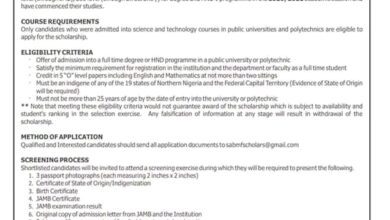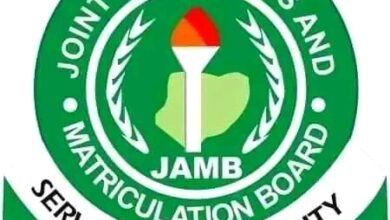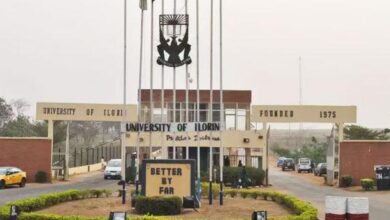Polytechnics to Study Industrial and Labour Relations in Nigeria

Are you interested in understanding the dynamics of industrial relations and labour policies in Nigeria?
Pursuing a degree in Industrial and Labour Relations can equip you with the knowledge and skills needed to navigate the complexities of the workforce.
In Nigeria, there are only three polytechnics that offer specialized programs in this field.
List of Polytechnics to Study Industrial and Labour Relations in Nigeria
In this article, we will explore these institutions and shed light on what makes them stand out in the realm of Industrial and Labour Relations education.
1. MINILS – Maritime Institute of Nigeria, Lagos State
MINILS, located in Lagos State, is a leading institution offering a comprehensive program in Industrial and Labour Relations.
With a focus on maritime industry-specific labour relations, MINILS provides students with specialized knowledge tailored to the Nigerian maritime sector.
The curriculum emphasizes labour laws, negotiation strategies, and dispute resolution techniques, preparing graduates for impactful roles in maritime labour management.
2. Ramat Polytechnic, Maiduguri
Ramat Polytechnic, situated in Maiduguri, is renowned for its rigorous curriculum in Industrial and Labour Relations.
The program at Ramat Polytechnic covers a wide range of topics, including industrial sociology, labour economics, and collective bargaining.
The institution’s commitment to practical learning equips students with hands-on experience, enabling them to apply theoretical knowledge to real-world scenarios.
Graduates from Ramat Polytechnic are well-prepared to contribute meaningfully to the field of industrial and labour relations.
3. FEDFISH-LAG – Federal Co-operative College, Ibadan
FEDFISH-LAG, located in Ibadan, stands as a distinguished institution offering specialized courses in Labour Studies.
The college’s unique approach combines co-operative principles with industrial and labour relations education.
Students at FEDFISH-LAG gain insights into cooperative management, labour market trends, and social policies.
This holistic approach ensures that graduates possess a well-rounded understanding of labour relations in various sectors, making them versatile professionals in the field.
FAQs
What are the admission requirements for studying Industrial and Labour Relations at these polytechnics?
Admission requirements typically include a minimum of five O-level credits, including English and Mathematics. Some institutions may require additional entrance exams or interviews to assess candidates’ suitability for the program.
What career opportunities are available for Industrial and Labour Relations graduates in Nigeria?
Graduates can pursue careers as labour relations specialists, human resource managers, industrial relations consultants, and policy analysts. They find employment in government agencies, corporations, labour unions, and non-profit organizations, playing pivotal roles in shaping workplace policies and practices.
Are there scholarships or financial aid options available for students studying Industrial and Labour Relations?
While specific scholarships for Industrial and Labour Relations may be limited, students can explore general scholarships offered by government bodies, NGOs, and private institutions. Additionally, some polytechnics provide financial aid programs and work-study opportunities to support students financially.
How do these polytechnics facilitate industry connections for Industrial and Labour Relations students?
Polytechnics often collaborate with industry partners, organizing seminars, workshops, and guest lectures featuring industry experts. Students also participate in internships and field visits, allowing them to network with professionals and gain practical insights into the field of industrial and labour relations.
Also Read: Top Polytechnics to Study Music Technology in Nigeria





